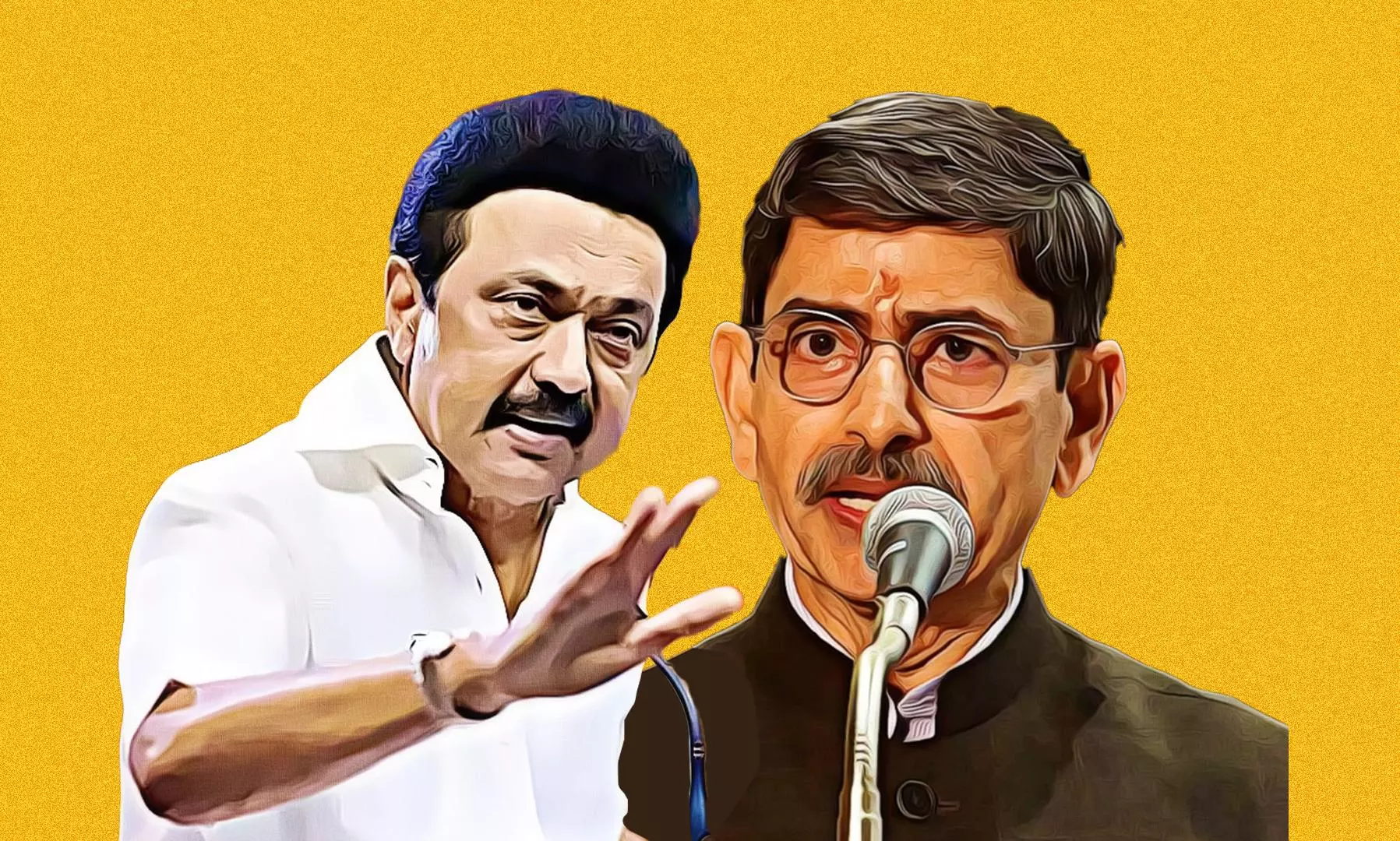
Tamil Nadu | Readoption of Bills marks fresh twist in Governor-govt row
MK Stalin government seeks to reassert its federal rights; experts question need for a special session of Assembly

The months-long war of words — and war of action — between the MK Stalin government in Tamil Nadu and Governor RN Ravi took yet another twist with the former convening a special session of the state Assembly. At the heart of the issue is what the Tamil Nadu government considers a violation of its federal rights by the Raj Bhavan.
At the session on Saturday (November 18), the Tamil Nadu Assembly readopted 10 bills for which Ravi had ‘withheld assent.’ Calling the Governor’s decision to withhold assent to bills adopted by an elected Assembly “illegal, undemocratic, anti-people and anti-conscience”, Chief Minister Stalin said: “We will continue to oppose Governors creating problems in states not ruled by the BJP.” He also called the Governor’s action an insult to the state and people.
“Whatever is happening looks ugly and unprecedented,” VV Swaminathan, a former minister, told The Federal. “The Governor, appointed by the President, seems to usurp the powers of the legislature constituted by duly elected members.” Swaminathan, a nonagenarian, was a senior cabinet member of the MG Ramachandra-led AIADMK government. He had held up to 13 portfolios when MGR was the Chief Minister, in the 1980s.
Fresh low in long war
The developments over the week perhaps marked a fresh low in the relationship between the state government and the Governor. After the Supreme Court on November 10 expressed “serious concerns” over the indefinite holding back of Bills, Ravi on November 16 returned the Bills, stating that he was “withholding assent”. The special session was convened immediately thereafter.
Most of the Bills for which Ravi had withheld assent were about giving more powers to the state government in the administration of state universities and diminishing the powers of the Governor. Even during the debate in the special session, Water Resources Minister Durai Murugan pointed to the Governor holding back the order to confer an honorary doctorate to the deceased Communist veteran N Sankaraiah, and called it “blatantly dictatorial”.
Endorsing the special session’s resolution to readopt the Bills, Viduthalai Chiruthaigal Katchi leader Thol Thirumavalavan explained why the Governor was not right in withholding assent for the Bills. “It is not legally binding on the state to appoint the Governor as chancellor of universities created by the state using its funds. The Constitution, too, in its definition of the roles of the Governor, does not mention making him the chancellor,” he said in a statement.
Tradition from a different era
Pointing out that the founders of private universities decide on their chancellors, Thirumavalavan said the Governor has no role in private universities. He further said the tradition of appointing Governors as chancellors was introduced after Independence, when a single party formed the government both at the state and at the central levels.
“Other parties that came to power followed the tradition. The BJP government uses governors to degrade higher education in states not ruled by it,” he argued. He had also pointed out to reports by Commissions including Sarkaria and Punchhi, which recommended against appointing governors as chancellors and argued in favour of Tamil Nadu’s decision to remove the Governor as chancellor of universities.
Speaking at the Assembly session before staging a walkout, Opposition leader and AIADMK general secretary Edappadi K Palanisamy wondered why the government was not exercising patience till the Supreme Court delivered its judgment. “The Governor has only withheld the Bills and has not cancelled them. What is the need for a special session when the case is still on?” he asked.
In response, Higher Education Minister K Ponmudy said the Chief Minister had convened the meeting “so the case in the Supreme Court would be favourable for us”.
Withholding vs returning
Clarifying that convening the special Assembly session had nothing to do with the court case, senior journalist K Venkatramanan, however, observed that the state government needn’t have convened one at all.
“The session has been convened on the wrong basis that the Governor is bound to grant assent if the Bills are adopted again. The Governor has not returned the Bills. Withholding assent means rejection of the Bills,” he said.
A rejected Bill cannot be re-enacted, Venkatramanan said, adding that and even if it is re-enacted it can only be treated as a fresh Bill. “It is not thus binding on the Governor. He can reject it again. The proviso of Article 200 only covers the Bills returned for reconsideration. When the Governor rejects the Bill, there is no option left in the Assembly. All that is left is the legal option,” he said.
Governor’s 4 options
Pointing out that withholding assent is the second of the four options in front of the Governor (the others being granting assent, reserving for President’s consideration and returning for the government’s reconsideration), Venkatramanan said the state government, however, could have approached the court stating the Governor was rejecting the Bills “without any reason”.
“Withholding assent could have been challenged separately, because it goes against the spirit of Parliamentary democracy. The Governor is neither a court which can rule the constitutionality nor can he overrule the opinion of the government for no reason,” he observed.
This is the third time the state government has re-enacted Bills after a feud with the Governor. While the Governor forwarded the anti-NEET bill to the President for consideration, he had given assent to the law against online rummy.

